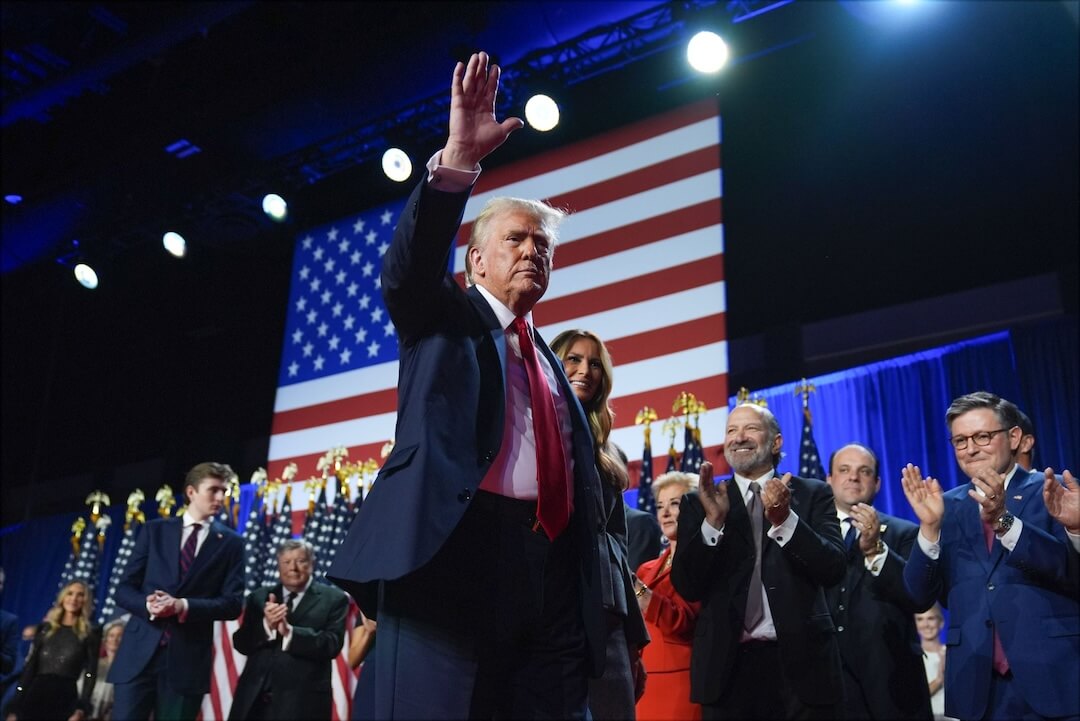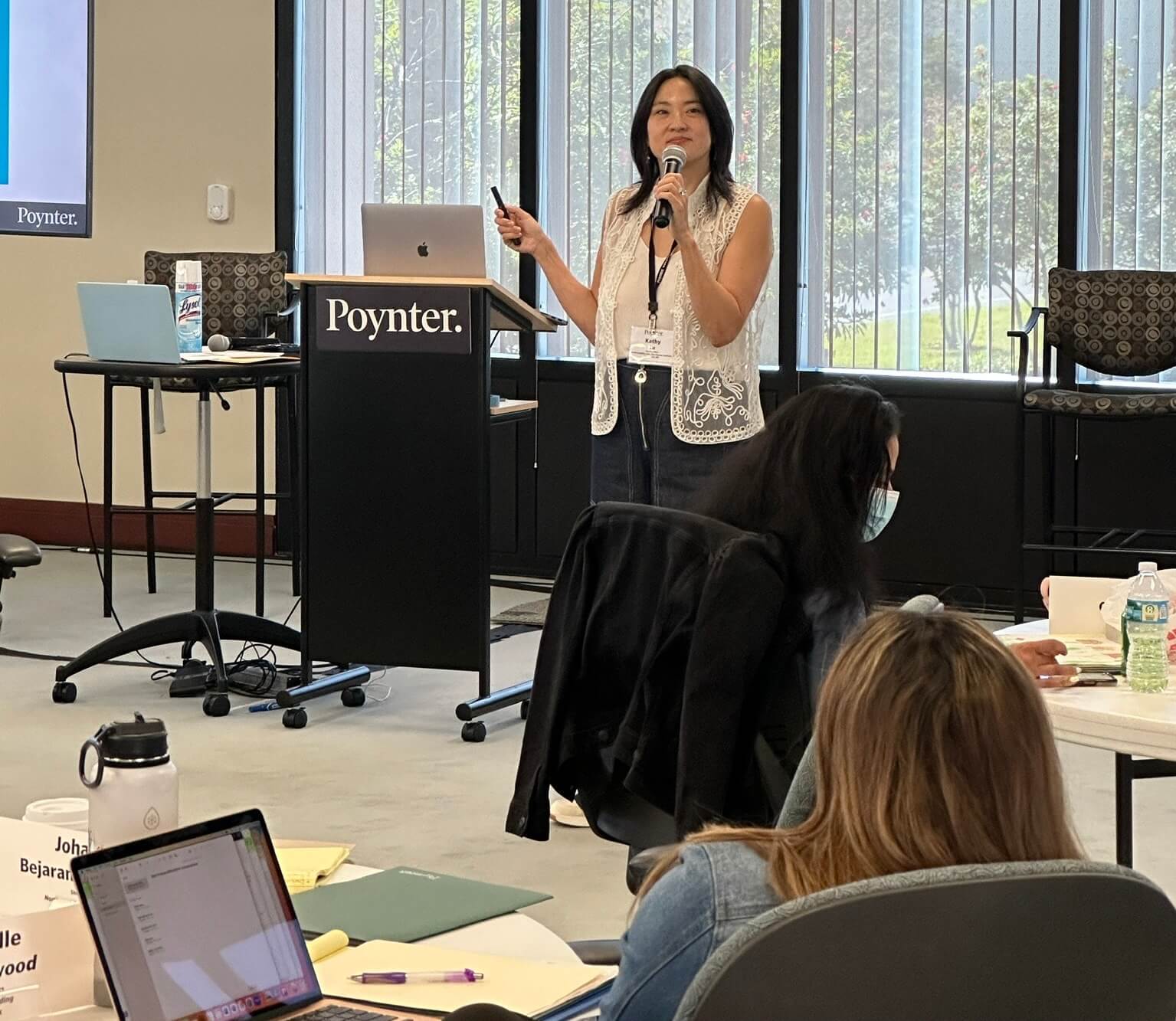It’s still hard to believe Orlando is home to the worst mass shooting in U.S. history.
Even six months later, it’s surreal to think 49 people were killed at a club I pass every day on my way to work. The shooting changed Central Florida forever and with it, transformed our newsroom and reporters.
The news was unbelievable. It made no sense. Even veteran journalists were in the same boat as me, someone who graduated from college a little more than a year ago. No one was an expert when it came to covering a mass shooting and ISIS-inspired attack.
We continue learning each day in the aftermath of the attack. Here are some lessons we’ve learned over the last six months.
Question everything
About 5 a.m. the morning of the shooting, I had an idea of what happened after hearing stories from several survivors. I knew there were at least 20 people shot, hostages and a bomb threat.
So when I heard a loud “boom” coming from the club, my mind immediately went to the worst-case scenario: The bomb went off. More people were injured.
A survivor nearby huddled behind a car and I went over to comfort him. He thought the same thing I did.
Both of us were completely wrong. SWAT blasted holes in the side of the building and were rescuing those trapped inside bathrooms. They got into a shootout with the gunman and killed him. It was over.
Sometimes your eyes and ears can deceive you.
Just because you hear popping doesn’t mean it’s gunfire. Just because you hear a boom doesn’t mean it’s a bomb. Question even yourself because what you say or write becomes facts to readers and viewers.
Use the same method when talking to witnesses or survivors. It’s difficult to question someone and be skeptical of their story in something as tragic as a mass shooting, but it’s definitely something I’ve taken away as a lesson.
Many swore there was a second shooter inside Pulse that morning. But it turned out, there was only one mad man with a rifle. What these people saw was traumatic, and often it causes a misrepresentation of facts.
Also, it’s sad to think that people try profiting off a tragedy, but they do. There were a few who tried setting up GoFundMe accounts or lied about being inside the nightclub to get cash.
Be wary of who you’re talking to. In the first days of coverage, we were looking for survivors and witnesses. Make sure you are talking with someone who was actually there. Try and ask them about details you already have verified or try to track down friends they were with to help corroborate the story.
Organization is key
Those first hours of reporting were a blur. I scribbled pages and pages of sloppy notes in my notebook.
I talked with cops, survivors and family members of the victims in between sending updates to our newsroom and social media as I reported outside a hospital just a few blocked from Pulse nightclub.
A day or two after the attack, I couldn’t find my notebook from that morning. I think I can say this is every reporter’s’ worst nightmare. I tore apart my car and desk but nothing. I needed the phone number of a survivor who made it out of the club. I thank the journalism gods everyday that I added his number to a Google Sheet we had just created for the shooting.
A story of this magnitude meant talking to a lot of people and keeping up with a lot of information, which continues to be released even today. The smallest detail can be crucial.
We created a Google Sheet with multiple tabs to help keep our newsroom organized with contacts and who was working on what story.
It helped keep track of funeral arrangements for each of the victims and the status of the missing when the fate of many victims was still unknown. We also sorted out survivors, whether they were injured and their contact information.
Normally, our newsroom, like most newspapers, is segregated by beats. But for a week or two after the shooting, everyone was covering Pulse nightclub. I shared bylines with people I hadn’t ever talked to in our newsroom.
We had a separate Google Sheet for public record requests to keep track of everything we had asked for and what the response to those requests were.
We also alerted other writers when one of us was interviewing a primary public official, like the police chief or mayor. This helped prevent 20 of us calling the same person for interviews.
As reports, 911 calls and footage continues to be released, we’ve kept tabs on what those records detailed to help get a better and fuller idea of what happened June 12 and how things unfolded.
I have no doubt that without this level of organization, our coverage would not have been nearly as thorough or accurate.
Don’t be afraid to ask for help
When I drove over to Pulse nightclub, the entire neighborhood was shut down. Every intersection had cops with long guns.
It was clear that whatever happened was big. I didn’t hesitate when I called another reporter for help a little after 3 a.m. It was the best decision I made.
We tag-teamed the area. I stayed by the hospital. She got on the other side of the club and met with victims and families. Both of us sent feeds back to the newsroom and kept updating social media with the latest but it was very overwhelming. It was an extremely active scene. Trucks were hauling victims, survivors ran toward us after escaping the club, families were looking for their loved ones then an explosion and gunshots sounded, ending the three-hour ordeal.
Without her, I would have felt like I was in over my head and we wouldn’t have done nearly as much reporting from the scene.
That same sentiment came during our coverage. Each reporter has their specialty and that thing they’re really good at. Some reporters were able to connect with families and survivors while others worked to unravel who the gunman was and why he was in Orlando.
Don’t be afraid to speak up if you’re not up for the task or need a hand.
It’s a big undertaking to cover a mass shooting and one that most journalists don’t ever have to experience. Ask for help if need it. You and your story will be better off in the end.
Sourcing, sourcing, sourcing
I was browsing Facebook the other day and saw one of the Pulse victims post screenshots from emails he got from the FBI. It was another story I pitched to my editor.
I’ve kept in touch with many of the victims like I would other sources, either calling every other week or sending them a Facebook message to see how things are going.
I know their stories and love to hear how they’ve continued to heal, both physically and emotionally. Most of the time when I catch up one of the victims, they drop a tip about something new or something we haven’t heard about.
It’s led to a goldmine of stories and exclusives.
Like most newspapers, we’ve seen layoffs and turnover. And with that came some of our veterans leaving the newsroom. They left behind holes in our coverage, which meant we didn’t have all the sources we would have liked when Pulse happened.
I just started on a new beat when the tragedy struck. I hadn’t developed deep sources within law enforcement to help me report on what happened and how things unfolded. I didn’t have that level of trust yet.
Bettering our sources has been a constant conversation in our newsroom since the shooting.
My coworkers were able to score some exclusive interviews and tell some really amazing stories thanks to close sources. It helps to have a friend when you’re competing with reporters from The Washington Post and The New York Times.
Remember, you’re a person, too
I remember not wanting to leave the newsroom that first day. All I wanted to do was help and be out in the community, telling different angles of the story and helping explain the unexplainable. Even after working all night, I stayed until midnight and got one of the first newspapers fresh off the press.
But we all crack. I remember when it all really hit me. A mother I met in the early hours of the shooting was on TV. When I met her outside the hospital, she was frantic and just wanted to know what happened to her son. She couldn’t reach him.
Then the TV showed her son’s face. He was one of the victims. I remember what a gut punch that was and couldn’t help but tearing up in the newsroom.
Our newsroom brought in therapy puppies and I think it was one of the first times I saw people actually smiling that week. It was hard to be strong.
Everyone needs to vent and talk about it. Our newspaper offered free therapy if we needed it.
A large group of us also went out for drinks and food that week to talk about everything. The support was important. Just talking about it was therapeutic.
Many of us worked a lot of overtime that week. I worked an extra 40 hours. But I took a long vacation in the weeks after the shooting. We all needed some time to unwind and get away.
A responsibility to community
As more and more horrifying audio and video is released in the shooting, we’ve had to take a step back and ask ourselves what good will sharing this do for our community. We fought for 911 calls in court in an effort to examine how law enforcement responded to the club so that’s what our stories were about.
It’s easy for people to say the media sensationalize tragedies. But we examined each report, video and piece of audio to see what the benefit would be to the public.
Along those lines, we also had a responsibility to be a voice for our community.
One of the first things I learned about Orlando when I moved here was how accepting the city is of the LGBT community. It was hard to grasp that now our city would be known for a massive attack at a gay club.
It wasn’t who we were.
Contrary to how many see Orlando, we aren’t all Disney World, either. When the world had its eyes on our city, we showed who we were.
I remember in the immediate aftermath, along with telling stories of the horror inside the club, we also shared stories of hope and resilience. One of our columnists wrote a touching piece about how this tragedy would never define our city. He detailed what our community really is and who we are.
Even our front page the day after the shooting was an editorial about hope for the future, our headline reading “our community will heal.”
When dozens of reporters from around the nation and world swooped in to cover the tragedy, our role became not just reporting the news but also being a voice and a reminder that we’re strong and #OrlandoUnited.






